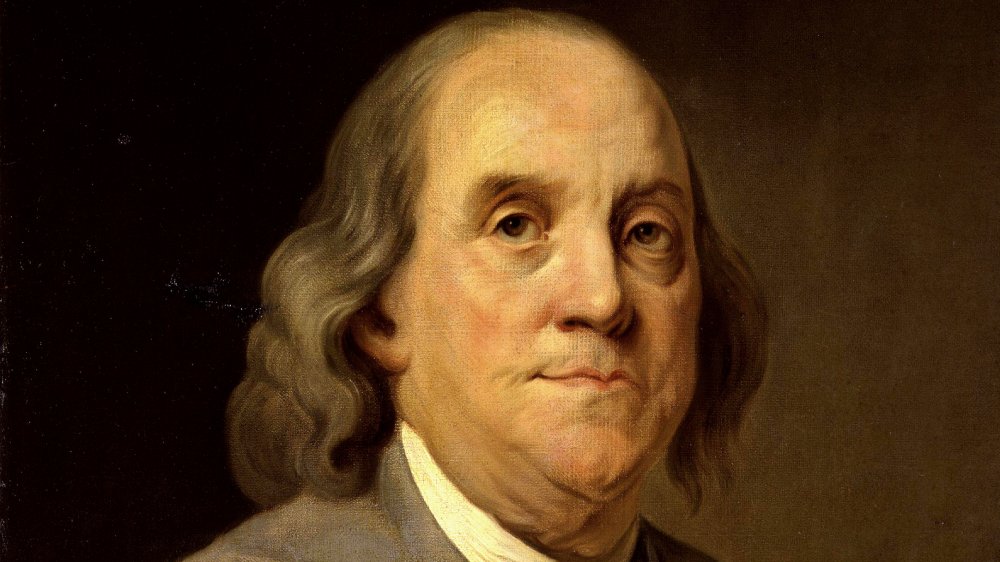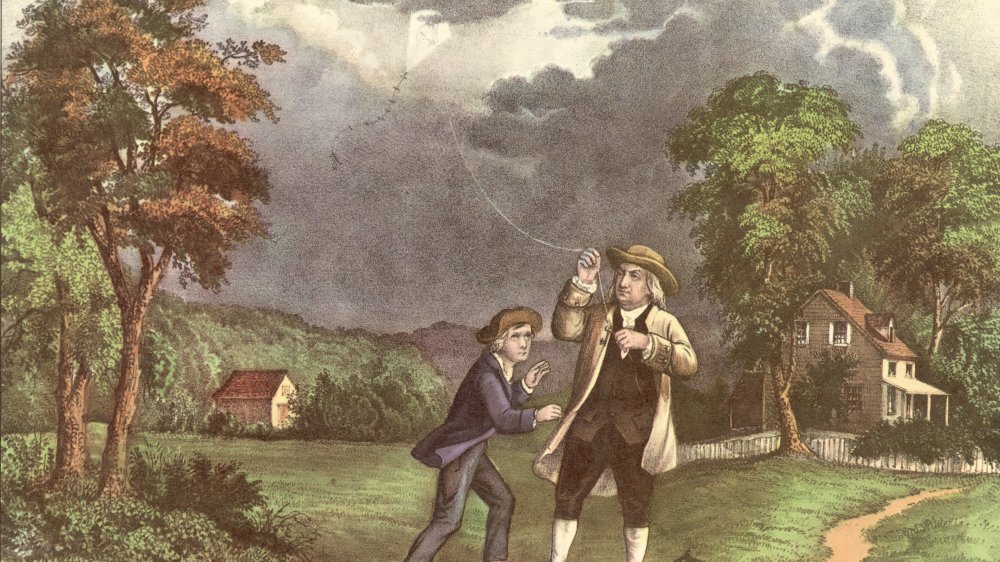The Truth About Benjamin Franklin's Illegitimate Son
Benjamin Franklin: hater of eagles, champion of turkeys, and father of founding things. History lists some of the many impressive things Franklin founded and fathered, including Philadelphia's first fire department, an instrument called the glass armonica, the United States, a more fuel-efficient stove, and bifocals. According to the Lancet, Big Daddy Franklin also helped father "the first ever placebo-controlled medical experiments" and found out that the concept of animal magnetism was a sham in the process. Amazingly, he accomplished all these things and more after ending his formal education at age 10.
Ben Franklin was also the Dwayne Johnson of Founding Fathers in that he was the most electrifying man in the country and may have had the most electrifying manhood. Not only did he famously illustrate that lightning is electricity, he both invented the lightning rod and used his love rod to make sparks fly in the bedroom. Despite debunking animal magnetism, he attracted so many attractive women that Time magazine literally called him "a babe magnet." One of Ben "The Rod" Franklin's love strikes produced his son, William. William would prove how profoundly hard it can be to be a dad, even for someone as great at fathering things as Ben Franklin.
William Franklin became a political lightning rod
Ignoring moral norms for a moment, William Franklin was just as legitimately a human being as any of Ben Franklin's three children. But History writes that he was born out of wedlock, and you know how judgmental people can get. Ben and his already-married common-law wife, Deborah Read, raised William. The boy would became a partner in science, assisting Ben in his famous kite experiment, according to the Vintage News. Unfortunately, founding father and son parted ways when it came to the American Revolution.
As Time describes, Ben had been reluctant to break away from England but ultimately soured on the monarchy. William never did. In that sense, the son simply followed in his father's footsteps until their political paths diverged. William would serve as governor of New Jersey and clash with the legislature over the Revolution. He was incarcerated during the war, his property was confiscated, and his wife died.
After having everything taken away from him William was left with almost nothing by Ben, who mostly excluded William from his will. In 1782, the spurned son sailed to England, lamenting, "I must resign myself for the remaining Days of my Existence to that Solitary State which is most repugnant to my Nature." He died in exile.

